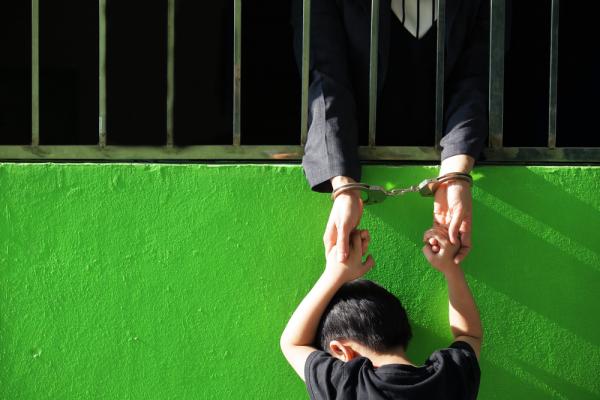This Mother’s Day, if you have been loved by a maternal figure, give them a call. Then hang up and call your representative. We have legislation to pass on behalf of incarcerated mothers.
Eighty percent of incarcerated women in the U.S. are mothers. And though men make up the overwhelming majority of incarcerated people, the population of women in prisons is growing at much higher rates. The number of jailed women has increased from 8,000 to 110,000 from 1970 to 2016. When the horribly damaging War on Drugs spread through the U.S. in the ‘80s and ‘90s, the criminal justice system began arresting and processing people — disproportionately people of color — for minor offenses.
For both women and girls, minor offenses are more common than violent offenses. According to the ACLU, only 18 percent of incarcerated women have been convicted for violent conduct.
Our criminal justice system was designed for men. And unfortunately, its subsequent reform has also overlooked the unique challenges facing incarcerated women.
Overwhelmingly, incarcerated women and girls have survived domestic and/or sexual violence, a phenomenon now known as the Abuse-to-Prison Pipeline. According to the Court Services and Offender Supervision Agency, 75 percent of incarcerated women have suffered severe physical abuse by an intimate partner during adulthood, and 82 percent have endured serious physical or sexual abuse as children.
Even though incarcerated women are more likely than incarcerated men to have a child relying on them for financial and emotional support, women have extra challenges to getting visits with their kids. Because there are fewer prisons for women than there are for men, families often have to travel greater distances to visit incarcerated women. With constraints of finance, legislation, and distance, the New Testament admonition to “visit the prisoner” has become harder and harder to live out, especially if the prisoner happens to be your mother.
This can have devastating impacts on both the parents and their children. When Child Trends released a study in 2015 called “Parents Behind Bars: What Happens to their Children?”, the researchers revealed a key way to mitigate negative impacts of the separation between parent and child: “improv[e] communications between the child and the incarcerated parent, and mak[e] visits with the incarcerated parent more child-friendly.”
Fortunately, policy makers have begun to propose solutions-oriented laws for incarcerated women. While diversion programs (alternatives to incarceration seeking to correct the specific problem that led to the arrest) can save money, prevent recidivism, and make communities safer, prison reform policy can improve the lives of people who are already incarcerated. The Dignity for Incarcerated Women Act has the modest but crucial goal of seeking more humane, gender-informed, and trauma-informed treatment for incarcerated women.
Most significantly to incarcerated mothers, this bill would increase visitation rights, remove steep fees for phone calls and video calls, stop the practice of shackling pregnant women during labor, and ensure that primary caregivers are placed in prisons as close to their children as possible.
Even though Congress has not voted on the Dignity for Incarcerated Women Act, states have begun using it as a model for state-level legislation. We must keep the momentum rolling. This Mother’s Day, give the gift of civic engagement.
Got something to say about what you're reading? We value your feedback!






